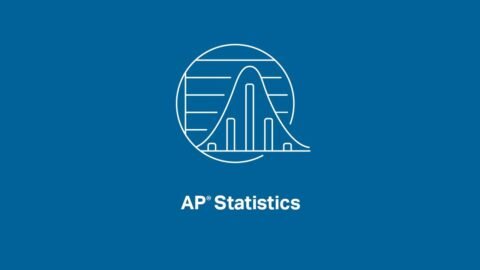Let’s be real: If you’ve ever stared at the AP course catalog and felt that tug-of-war between “I want a challenge” and “But I also want to survive junior year,” you’re not alone. And nothing sparks more confusion (and debate) than the epic question:
Is AP Calculus BC harder than AB?
Spoiler: It depends on who you are, how your brain works, and what kind of math battle you’re ready to fight.
I’ve worked with hundreds of students who took one or both courses, and I’ve seen it all—from perfect 5s to meltdowns over Maclaurin series. This guide? It’s not just about comparing two math classes. It’s about helping you figure out which one fits you.
We’re going deep. Buckle up.
🎯 Chapter 1: What Even Is AP Calculus AB vs. BC?
Let’s break it down in plain English (no theorems yet, I promise).
AP Calculus AB:
Covers 1 semester of college calculus
Topics: limits, derivatives, integrals, basic applications
Equivalent to Calc I at most colleges
AP Calculus BC:
Covers 2 semesters of college calculus
Everything in AB plus:
Parametric, polar, and vector functions
Series (Taylor, Maclaurin)
More advanced integration techniques
Euler’s Method
Equivalent to Calc I + II at most colleges
Key Point:
BC includes everything AB does—but moves faster and goes further.
So yeah, it’s technically harder. But that’s not the whole story.
🧠 Chapter 2: What Makes BC “Harder” (and What Doesn’t)
If you’re wondering whether BC will ruin your GPA or mental health, let’s break down what adds difficulty—and what just adds fear.
What Actually Makes BC Harder:
Pacing: You move through AB content in ~60% of the school year to make room for the “BC extras.”
Series & Convergence Tests: The topic that haunts even strong math students.
More Math Maturity Required: You need to be quicker with algebra, trig, limits, and logical reasoning.
What Doesn’t:
The format of the AP exam (they’re pretty similar)
Teachers always teaching “harder” for BC (some AB classes are brutal too)
You thinking you’re not a “math person” (that’s a myth—skills can be built)
A Wild Fact:
Students who take BC often score better on the exam than AB students do on theirs.
Why? Because the students who choose BC tend to already be math-strong, better prepared, and more invested.
So harder material ≠ lower scores.
📊 Chapter 3: Let’s Compare the AP Exams
Here’s a side-by-side glance at what you’ll face on test day.
| Component | AB Exam | BC Exam |
|---|---|---|
| Length | ~3 hours | ~3 hours |
| Sections | Multiple choice + free response | Same structure |
| Calculators allowed? | Yes, in Section II (part) | Yes, same rules |
| Big Difference | Content tested | Content tested (includes series, parametrics, etc.) |
Key Detail:
If you take BC, you also receive an AB subscore—so you essentially get two scores in one. Neat, right?
🧮 Chapter 4: How the Curriculum Feels in Real Life
Let’s talk vibes.
What Students Say About AB:
“It felt fast, but manageable. It was like finally understanding the language of motion.”
“We spent a lot of time on concepts, which helped me feel confident by the exam.”
What Students Say About BC:
“It was like AB, but on espresso. We were doing integration by parts while everyone else was still drawing tangent lines.”
“The series unit? My brain nearly exploded—but I weirdly loved it.”
In short: BC requires stamina, curiosity, and comfort with being uncomfortable.
💬 Chapter 5: Should You Take AB First, Then BC?
This is a common path in schools that offer both courses sequentially.
AB → BC (over two years)
Pros:
Easier pacing
Strong foundation before tackling tougher concepts
Cons:
Takes up two years of your schedule
You “review” AB material again in BC (can feel repetitive)
Jump straight to BC
Pros:
Faster route to college credit (Calc I + II)
Looks great on transcripts
Cons:
Steeper learning curve
Requires strong algebra/trig foundation
My take? If you’re math-strong, love challenges, and have time for extra support (tutoring, study groups), jump straight into BC.
If you want to master the concepts slowly and don’t mind taking two years—go AB first.
🎓 Chapter 6: How Colleges View AB vs. BC
This is where things get interesting.
What admissions officers say:
“Both are rigorous. We just want to see that you took the most challenging path available to you.”
If your school only offers AB? Great. If it offers BC and you take AB? Still great—if you explain why (schedule conflict, better teacher, etc.).
College Credit Policies:
| Score | AB Credit | BC Credit |
|---|---|---|
| 5 | Usually 1 semester | Often 2 semesters |
| 4 | Usually 1 semester | Maybe 1–2 |
| 3 | Sometimes | Sometimes |
Check each college individually. Some engineering or pre-med tracks don’t accept any credit—they want you to retake Calc regardless.
🛠 Chapter 7: How to Prepare for BC (If You’re Thinking About It)
Skills to sharpen before diving in:
Algebra (seriously—know how to manipulate expressions fast)
Trig identities and unit circle fluency
Function transformations
Graph sketching and interpretation
Tools and habits:
Khan Academy: Review AB concepts quickly
Paul’s Online Math Notes: Life-saver for series and integrals
Study groups: BC is better with company
Office hours: Use them. A lot.
🔥 Chapter 8: Real Student Case Studies
Anika: Straight into BC
“I skipped AB because I loved math and wanted the challenge. It was brutal at first—but by second semester, I was thriving.”
Now: Double major in Applied Math + Economics
Max: Took AB → BC
“Honestly? AB helped me build confidence. I probably wouldn’t have survived BC without it.”
Now: Computer science major, scored 5 on both
Sarah: Took AB Only
“My school didn’t offer BC. Still got into Northwestern. No regrets.”
Now: Stats major, plans to minor in math
📈 Chapter 9: Final Score Data (Let’s Talk Numbers)
From College Board 2023 stats:
| Exam | % Scoring 5 | % Passing (3+) |
|---|---|---|
| AB | 20.4% | 58.6% |
| BC | 41.2% | 77.6% |
Surprising, right?
BC has higher pass and 5 rates than AB. But remember—self-selection bias. Students in BC tend to be stronger math students from the start.
🧠 Chapter 10: My Honest Advice
If you’re passionate about math or headed toward engineering, physics, or quantitative econ → Take BC
If you want solid foundation and time to grow → Take AB first, then BC
If your school only offers AB → Crush it, and move to higher math in college
Don’t pick based on prestige. Pick based on readiness.
And know this: a 5 in AB can matter more than a 2 in BC. Don’t bite off more than you can chew just for bragging rights.
✅ Final Chapter: So… Is BC Harder Than AB?
Yes. And no.
Yes:
It moves faster
It covers more advanced topics
It requires more maturity and resilience
No:
If you’re prepared, passionate, and curious
If your school supports you with great teaching
If you work smart, not just hard
In the end, it’s not about which one is harder. It’s about which one grows you the right way, right now.
Choose your math journey like you’d choose a hike:
AB = A steep but scenic trail
BC = The summit trek—harder, higher, but with the most unforgettable view
See you at the top 🧗


